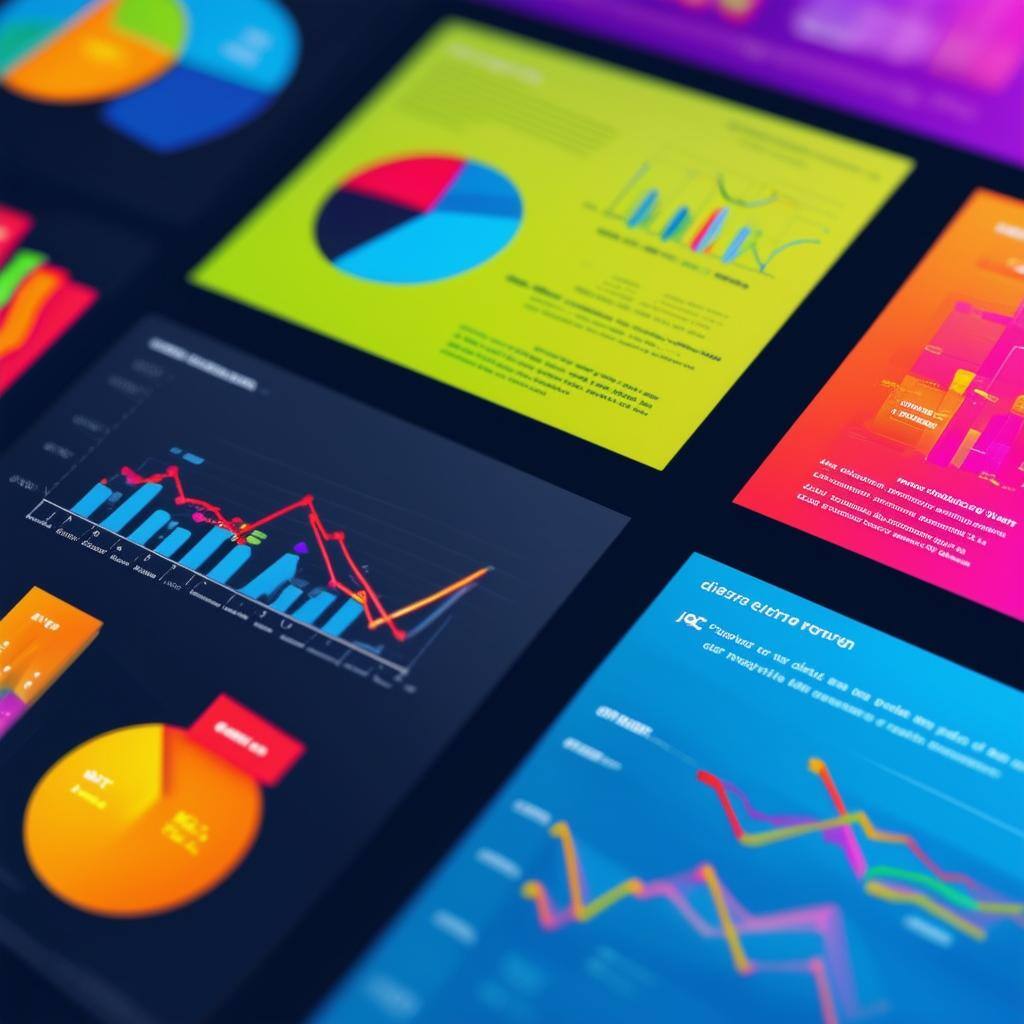Top Marketing Trends in 2025: What Every CMO Should Know (But Doesn't)
Uncover the emerging trends and technologies shaping the future of marketing, with clear insights tailored for strategic visionaries.
5 min read
Brands at Play : Dec 28, 2024 10:45:58 PM

Data-driven marketing involves leveraging insights from customer data, market research, and real-time analytics to inform data-driven decision-making and guide marketing strategies. By collecting and analyzing data—whether it’s online behavior, purchase history, or demographic information—businesses can create more relevant campaigns that drive conversions and long-term loyalty.
Key Insight: According to the Salesforce State of Marketing Report, 78% of marketers say real-time data has dramatically improved their personalization and campaign performance.
Expert Quote
“Modern consumers are easily bored by generic ads. Data-driven marketing lets us pinpoint audience segments and deliver relevant messages—at scale.”
– Leslie Torres, CMO of a Fortune 500 Retailer
The digital surge has transformed data from a “nice-to-have” to an absolute necessity. By 2025, hyper-personalization, predictive analytics, and AI-powered recommendation engines will drive innovation. Marketers who master these approaches report higher ROI and stronger brand loyalty.
Stat Spotlight: HubSpot’s Marketing Trends Report projects a 23% increase in real-time analytics adoption year over year.
Example: A fashion retailer detects a surge in browsing at 10 p.m. from a cost-conscious audience. By scheduling flash deals during this micro-moment, the retailer significantly boosts conversions.
Generative AI automates tasks like image creation, email subject lines, and ad copy. Gartner anticipates 50% of marketing teams will utilize AI-generated content by 2025, reducing time to market and enhancing creativity.
Modern dashboards empower teams to spot sudden shifts in consumer behavior—like a drop in cart completions—and adjust offers instantly. This always-on view of metrics ensures that campaigns remain agile and relevant.
Instead of giving all credit to the final click (last-click attribution), multi-touch and data-driven attribution models help you understand how each channel contributes to the entire buyer journey. This results in more precise budget allocation and a superior marketing mix.
From awareness to purchase, full-funnel analytics reveal where customers drop off and which channels drive quality leads. Forrester’s CX Index found 72% of businesses credit holistic funnel tracking for double-digit conversion boosts.
Platforms like Marketo, HubSpot, and Salesforce Marketing Cloud use AI to automate tasks such as lead scoring, ad bidding, and content personalization. A 2023 McKinsey AI Survey revealed 64% of businesses see significant sales and marketing performance gains after adopting AI.
By analyzing historical interactions and customer profiles, machine learning algorithms predict which prospects are most likely to convert. This helps sales teams prioritize outreach and drive faster conversions.
AI-powered chatbots handle 24/7 customer queries, product recommendations, and issue resolution. An IBM Watson study found 70% of companies reported improved customer satisfaction post chatbot deployment.
Zero-party data is information customers intentionally share, such as preference quizzes or wishlists. Forrester Research indicates 39% of companies plan to ramp up zero-party data collection to foster direct, trusted relationships with consumers in a cookieless future.
Consumers want curated experiences, from website personalization to product recommendations across apps. Epsilon found 80% of buyers are likelier to purchase from brands that offer relevant interactions.
Tools like Salesforce's engagement marketing platform (formerly Pardot) or Eloqua automate email campaigns, segment audiences, and coordinate cross-channel messages. This leaves marketers free for strategy and data analysis, improving campaign quality.
Automated campaigns use trigger-based messaging, like sending a reminder if a user abandons their cart. Omnisend research shows triggered emails boast a 70% higher open rate than generic blasts.
CDPs unify first-party and third-party data—spanning web analytics, in-store transactions, and call center logs—for a 360-degree customer view. By connecting offline and online touchpoints, brands can deliver relevant and consistent messaging across channels.
Platforms like Google Ads Data Hub and Amazon Marketing Cloud let marketers and publishers analyze campaign performance collaboratively, without sharing sensitive raw data. This fosters privacy-focused insights to refine targeting and measure success accurately.
Regulations like GDPR and CCPA require transparent data usage. A Cisco Consumer Privacy Survey found 86% of consumers say they value data privacy and expect companies to protect their personal information.
Giving users control over their data builds trust and reduces churn. Clear opt-in forms, minimal data sharing, and robust privacy notices help brands maintain credibility in a privacy-focused era.
Predictive analytics solutions such as Microsoft Azure Machine Learning or AWS SageMaker help brands detect likely churn or purchase intent. Marketers then can craft timely win-back or upsell campaigns that preempt competitors.
By anticipating the impact of each channel or campaign element, predictive models streamline spend distribution. Deloitte Insights notes an average 10–15% boost in marketing ROI for brands that embrace predictive analytics.
If implementing all of these strategies feels overwhelming, consider partnering with a data-driven marketing agency. These specialized firms focus on:
Pro Tip: When evaluating top data-driven marketing agencies, look for proven experience with AI-based campaigns, robust client testimonials, and a transparent approach to data privacy and compliance.
Staying ahead in the evolving digital ecosystem means harnessing data to deliver value at every customer touchpoint. By adopting advanced analytics, zero-party data strategies, and real-time automation—supported by expert agencies or in-house teams—your brand can thrive well beyond 2025.
Contact Brands at Play for expert guidance on harnessing AI-powered marketing solutions. Our team specializes in advanced analytics, personalized campaign strategies, and integrated data solutions—all backed by a proven track record of delivering measurable ROI. With a commitment to ethical data practices and cutting-edge technology, Brands at Play is your partner for transforming audience insights into actionable, high-impact marketing. Reach out today to schedule a free AI Marketing Strategy Session and discover how we can help you thrive in an ever-evolving digital landscape.
Expect hyper-personalized campaigns fueled by AI, zero-party data strategies, and real-time analytics. Brands leveraging these tactics see higher ROI and stronger customer relationships.
Data-driven marketing agencies offer advanced tools, AI expertise, and industry-specific insights that help optimize campaigns and streamline internal processes. They can also ensure compliance with privacy regulations.
Common metrics include CAC (Customer Acquisition Cost), CLV (Customer Lifetime Value), engagement rates, and multi-touch attribution models to track channel effectiveness.
Predictive analytics anticipate consumer behaviors, such as churn or purchase intent, enabling marketers to create timely, relevant promotions that boost conversions and reduce customer attrition.
Absolutely. Generative AI can streamline creative processes—like personalized email copy, ad design, and product suggestions—even for modest marketing teams. Many SaaS providers offer affordable tiers for growing brands.
Final Note: If you’re aiming to fully unlock the power of data-driven marketing, whether in-house or by hiring a data-driven marketing agency, start by investing in real-time analytics, robust segmentation, and a privacy-forward mindset. By prioritizing these elements, your brand will be set to thrive in the competitive digital landscape—now and in the future.

Uncover the emerging trends and technologies shaping the future of marketing, with clear insights tailored for strategic visionaries.

From reluctant listener to stadium-filling superfan, my journey with Taylor Swift mirrors that of many professionals: I was initially drawn not to...

The fusion of artificial intelligence (AI) with marketing isn't just transforming businesses—it's redefining what's possible in customer engagement...